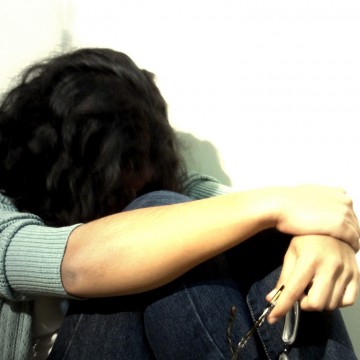Depression In Humans – Differences And How To Defeat It 0
Thursday, November 16, 2017
Kente Bates, Oregon Sports News
 Is depression different amongst humans, whether they be male, female or nonbinary? In so many words, yes. As far as symptom patterns tend to play out, they will usually fall in line with the two major genders. For women, the symptoms are more readily visible (i.e. crying, overeating) as for men, the symptoms are more subdued (i.e. working to excess, drinking/abusing drugs, working out to excess). In any case, the symptoms of depression ma, in fact, hit men harder due to lifestyle choices and extracurricular activities.
Is depression different amongst humans, whether they be male, female or nonbinary? In so many words, yes. As far as symptom patterns tend to play out, they will usually fall in line with the two major genders. For women, the symptoms are more readily visible (i.e. crying, overeating) as for men, the symptoms are more subdued (i.e. working to excess, drinking/abusing drugs, working out to excess). In any case, the symptoms of depression ma, in fact, hit men harder due to lifestyle choices and extracurricular activities.
Here are the top 5 signs of depression for men:
- Self-medication (abuse of controlled substances, abuse of alcohol and abuse of medications)
- Escapism (working more, working out to excess, retreating into more ‘childlike’ pastimes such as video gaming, LARP, etc)
- Irritability
- Risk-taking becoming a regular part of life (reckless driving, driving under the influence of drugs and/or alcohol)
- Becoming controlling, violent and/or abusive
Studies show that women are 3X as likely than men to be diagnosed with depression than men are and are at least 2X as likely to seek treatment for it. Here is a list of the top 7 causes/triggers for depression in women:
- Puberty (biological and social fallout from it- not fitting in, body image, etc)
- Premenstrual difficulty
- Pregnancy
- Postpartum depression
- Perimenopause/menopause
- Trials and tribulations of life itself
- Accompanying conditions of depression (anxiety, substance abuse and/or eating disorders)
Why the differences?
Obviously with traditional gender roles for the main two genders being as they are, women are afforded more avenues to get help and to communicate their feelings. Men are taught to “man up”, to be “strong” and to shun help. For men, them seeking help is often a result of not being able to function correctly (in some cases not at all) as the symptoms of depression interfere with life itself.
What to do about it
Whether you’re male, female, nonbinary or anywhere within the gender spectrum, the treatment for depression is a combination of psychotherapy and medication. Please know that it will take some research, patience and working with your mental health provider to develop the action plan to defeat depression. You and your mental health provider will have to figure out what works and what doesn’t work moving forward. As for the side effects of the medication(s), most of the side effects will go away on their own, usually within the first 3-6 weeks of taking them. As always, listen to your body and alert your mental health provider in lieu of any complications.
SOURCES
Gorman, J.M. “Gender Differences in depression and response to psychotropic medication”. Gender medicine 3.2 (2006): 93-109
Winkler, Dietmar et al. “Gender-specific symptoms of depression and anger attacks”. The Journal of Men’s Health & Gender 3.1 (March 2006): 19-24
“Male Depression: Understanding the Issues”. Mayo Clinic (2013)
“Depression In Women: Understanding the Gender Gap”. Mayo Clinic (2016)

